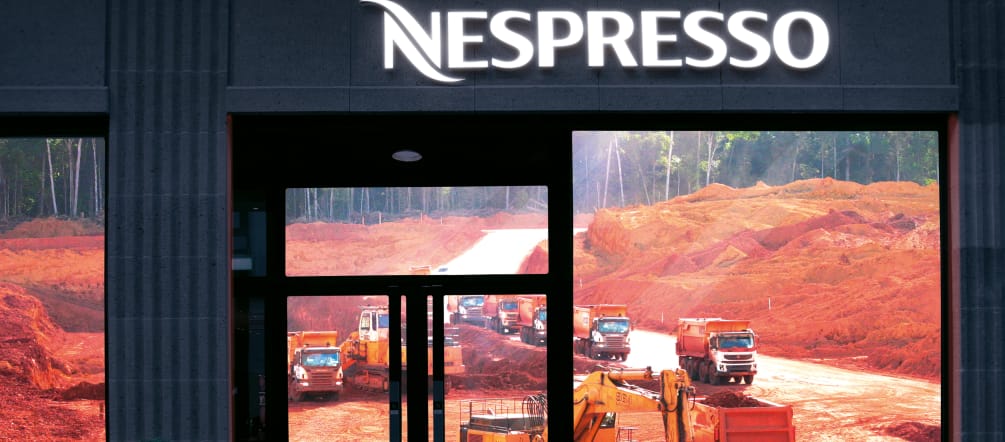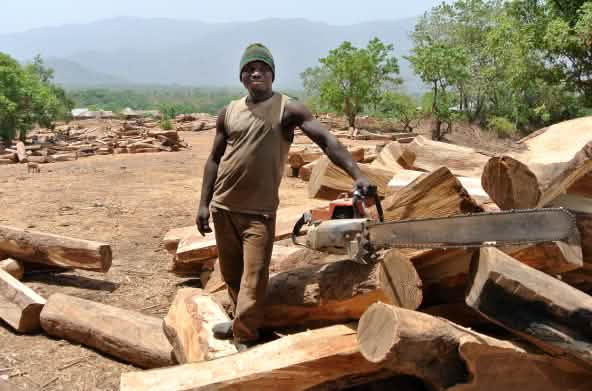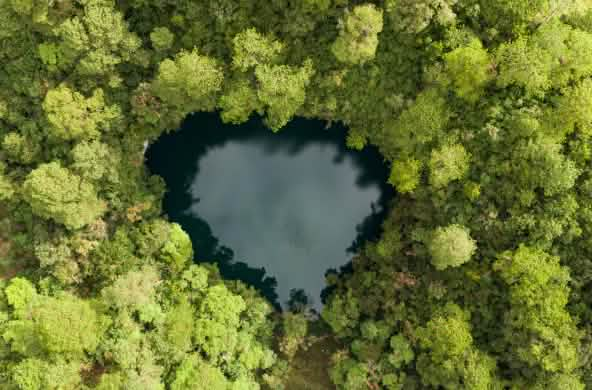
Completed campaign
Stop trashing the rainforest for Nespresso coffee pods!
More and more coffee drinkers swear by single-cup pods – a booming business for Nespresso, Keurig and others. Pods are tough on the planet, however: bauxite mines are eating into rainforests for the needed aluminum, most of which ends up in landfills after use. Tell the coffee companies to put an end to this needless destruction.
To: the managements of Nestlé, Nespresso and other coffee producers
“The production of coffee pods wastes thousands of tons of aluminum. Take them off the market now.”Coffee pods are fast becoming a fashion statement: European market leader Nespresso chooses only the most exclusive city-center locations – with neighbors like Apple, Cartier and Porsche Design – for its “boutiques”. George Clooney has been the glamourous face of the Nespresso brand for more than a decade. “Many consumers associate coffee pods with an upmarket lifestyle and day-to-day luxury,” notes Germany’s coffee trade association with pride.
Nespresso is only one of around twenty companies that market coffee pods. The “luxury product” can also be found at discounters such as Aldi and Lidl. Even organic coffee is available in pods.
Consumers who swear by coffee pods don’t seem overly concerned by the flood of waste they generate: In 2013, US market leader Keurig Green Mountain produced 8.3 billion non-recyclable plastic K-Cups, enough to circle the equator 10.5 times.
While Nespresso and other manufacturers pay lip service to recycling, they put the responsibility on their customers, who for the most part simply drop the used pods in the trash – unsurprisingly, considering that convenience is their biggest selling point.
Pods are more than a local waste disposal problem, however. Bauxite, the raw material used to make aluminum, is extracted in open-pit mines. Vast rainforest areas are being cleared in Brazil and other countries to make way for the mines. The smelting of bauxite is also extremely harmful to the environment and energy-intensive. In the Brazilian Amazon, rivers are being diverted and dams built to generate electricity for the smelters. Rainforests are being cleared or submerged in reservoirs and indigenous people are being forced off their land.
Tell the coffee producers to put an end to this needless waste of resources.
Europe is a continent of coffee drinkers. According to the European Coffee Federation, around 45 percent of all coffee exports worldwide are destined for the EU. Europeans consume 2.5 million tons coffee annually, which amounts to 4 kilos of roasted coffee per EU inhabitant per year.
Single-use pods currently make up one third of the €18 billion coffee market in Europe. The market in general is growing at 1.6 percent a year, while coffee pod sales are racing ahead, growing by 9 percent a year since 2011.
Coffee in pod form is far more expensive than whole beans or ground coffee in regular packs. Consumers pay €25 and more for a pound of ground coffee in pods. The ratio of packaging to content is also extremely unfavorable. Up to three grams of packaging are needed for six to seven grams of coffee powder.
Brewing coffee that's kind to the planet
There’s no question that coffee pods are a scourge on the planet. The best method to brew coffee depends on where and how much you drink:
- The French press is the most environmentally sound method, but only if you take care not to boil more water than necessary.
- Italian stovetop espresso makers are also good, provided the hob is not larger than the base of the pot, as is often the case.
- Automatic countertop coffee machines are the best choice for office environments, but they should be turned off when not in use.
Another problem: takeout coffee
Takeout coffee is a problem of its own: disposable cups are made of cardboard with a thin plastic lining, and are thus non-recyclable. In the United States alone, an estimated 60 billion cups end up in landfills every year.
The environmentally friendly solution is to bring your own mug – although some baristas might initially object for “hygienic reasons”.
To: the managements of Nestlé, Nespresso and other coffee producers
Ladies and Gentlemen,
The production of single-cup coffee pods consumes tons of aluminum, the production of which takes a heavy toll on the environment.
Bauxite, the raw material used to make aluminum, is extracted in open-pit mines. Vast rainforest areas are being cleared in Brazil and other countries to make way for the mines. The smelting of bauxite is also extremely harmful and energy-intensive. Producing one ton of raw aluminum requires 14,000 kilowatt hours of electricity.
In the Brazilian Amazon, powerful hydroelectric stations are being built for the smelters. Rivers are being diverted and dammed, rainforests cleared or submerged in reservoirs and indigenous people are being forced off their land.
Most aluminum pods end up in the trash. We regard the claim that most of the pods are recycled to be a public relations ploy. Delegating the responsibility for recycling to the consumer runs contrary to a responsible corporate strategy.
A sound approach would be to avoid unnecessary and polluting packaging from the outset. Brewing good coffee does not require aluminum.
We therefore call on you to drop aluminum single-cup pods from your product range.
Sincerely,

